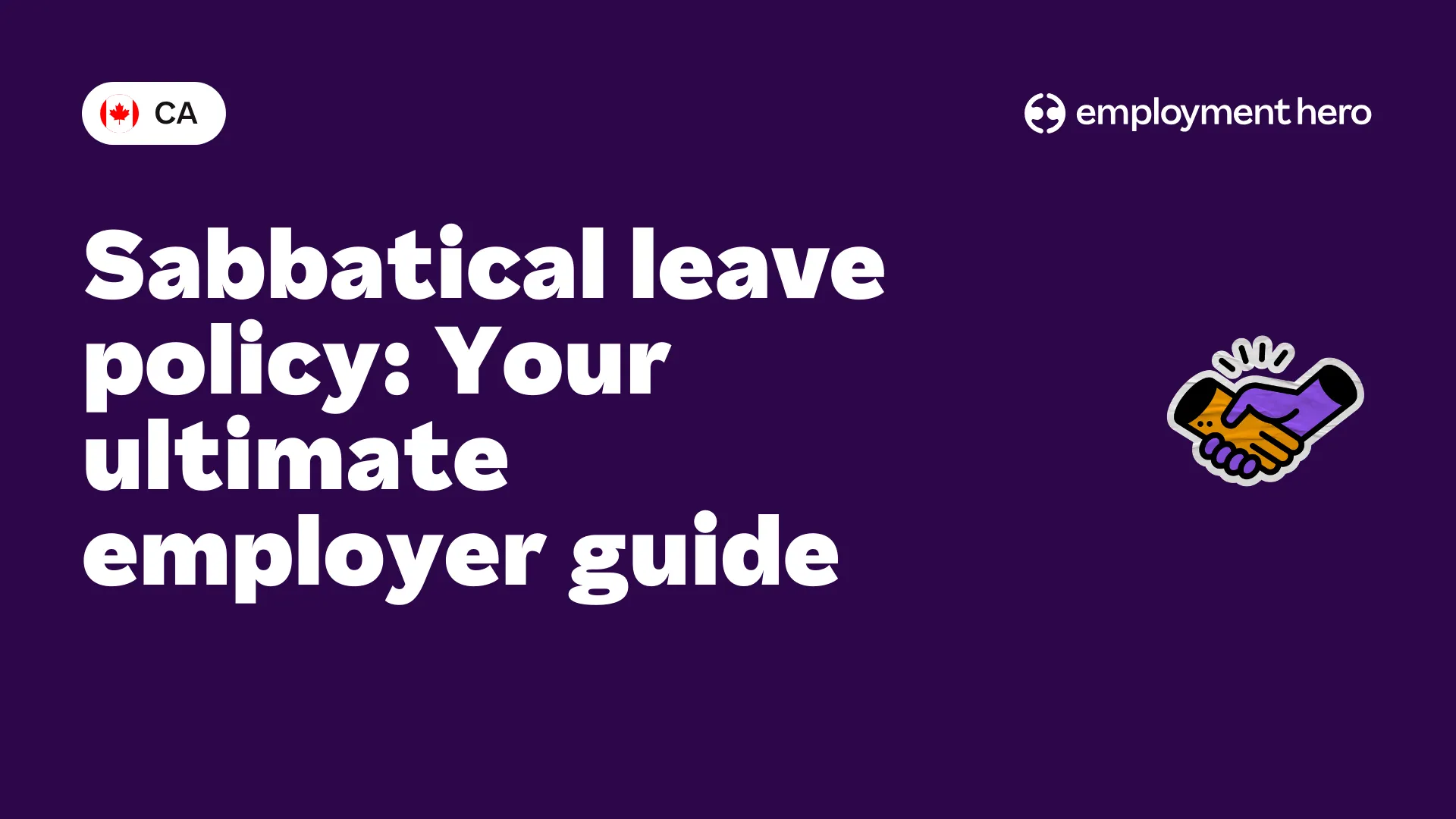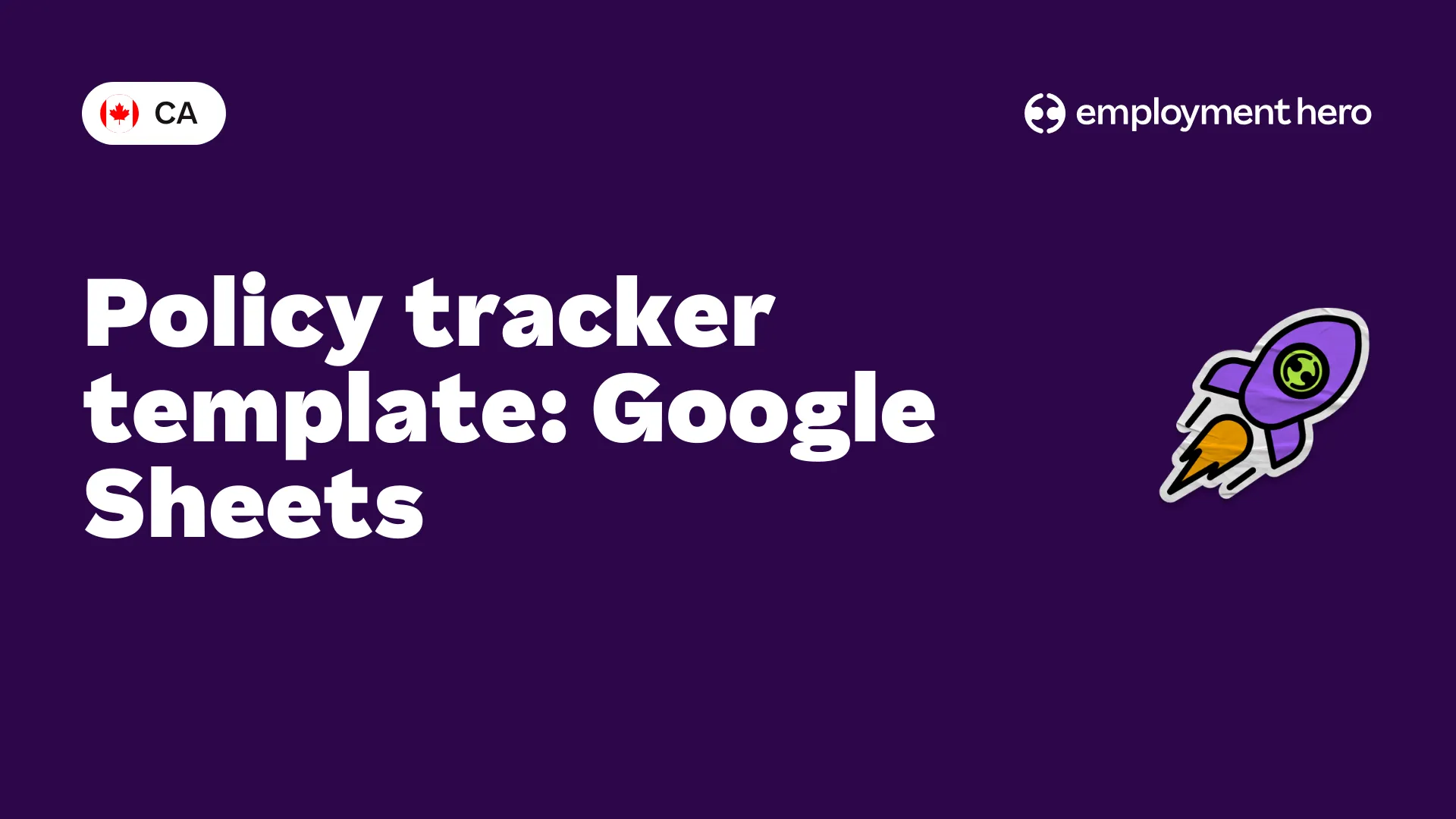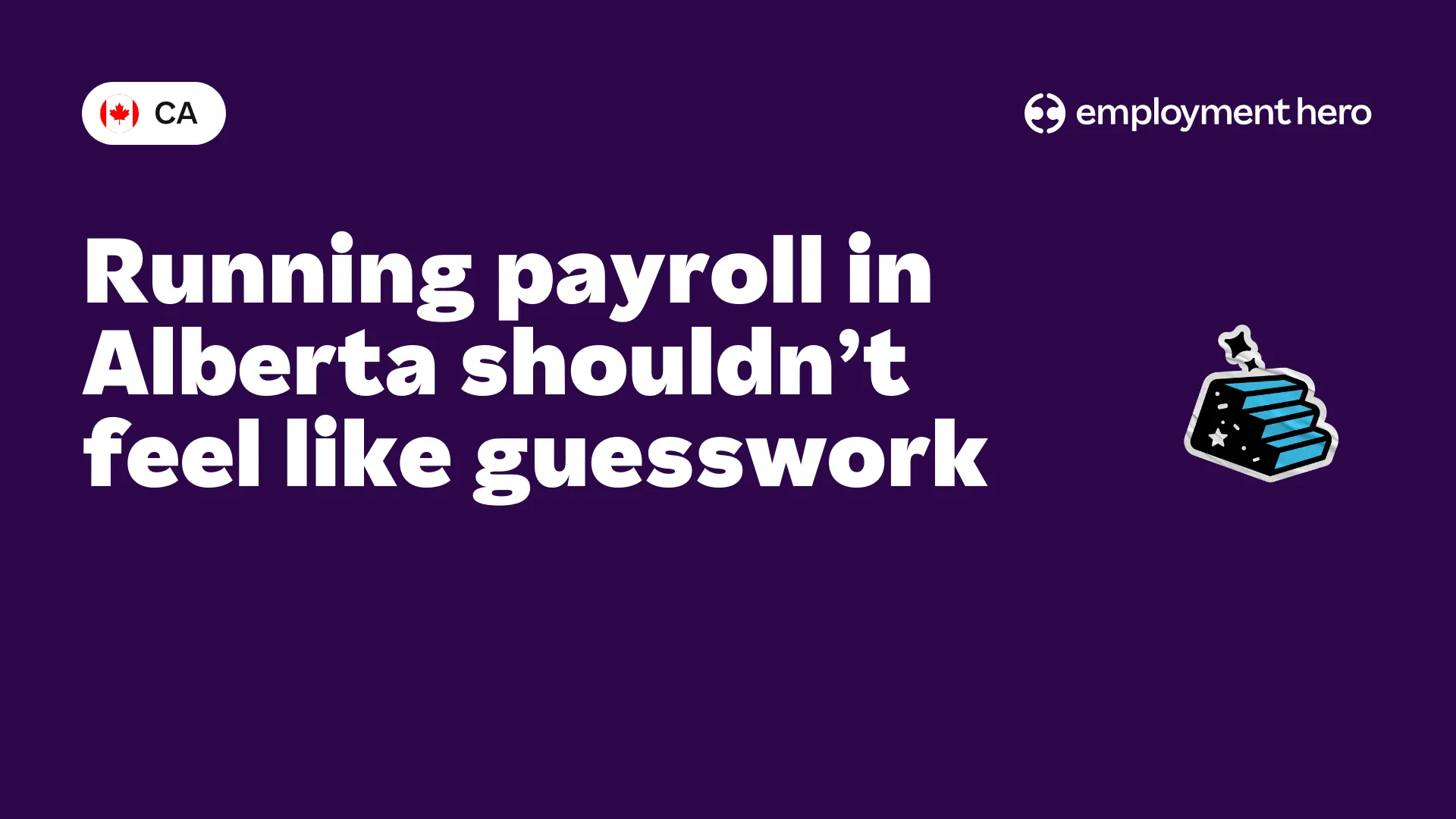Seasonal hiring in Canada: Retail and hospitality best practices
Published
Seasonal hiring in Canada: Retail and hospitality best practices
Published
The holiday rush is here! If you’re in retail or hospitality, you know exactly what that means: busy stores, packed restaurants and a thousand things demanding your attention. This is your busiest, most exciting—and sometimes most stressful—time of year. So, how do you handle the surge and keep things running smoothly? The answer is simple: your people. Nail your seasonal hiring and you’ll not only survive the rush, you’ll thrive.

But let’s be real. Finding, hiring and managing a great temporary team is more than just tacking up a “Now Hiring” sign and hoping for the best. If you want a crew that’s up to the holiday challenge, you need a plan. That’s where this guide comes in: practical, tested tips you can use to build the best team for your busiest season yet.
What rights do seasonal workers have?
Let’s clear something up right away: your seasonal staff deserve just as much respect and recognition as anyone else on your team. Just because they’re temporary doesn’t mean their rights are on hold. In Canada, your seasonal workers are covered by the same standards as your permanent crew—minimum wage, breaks, overtime and a safe work environment are all non-negotiable.
And here’s something you can’t overlook: letting a seasonal worker go isn’t just a handshake and a wave goodbye. You have to follow all the same rules as with your regular employees about giving notice or paying in lieu if you need to end their contract early. Fairness isn’t just a nice-to-have; it’s required.
Now, let’s break down the different types of seasonal employees that you can consider hiring.
Are there different types of seasonal employees?
You bet! Seasonal employees aren’t one-size-fits-all. Knowing the difference helps you set clear expectations and manage everyone the right way.
Here’s the lowdown:
- Casual employees: These employees jump in when you need them, no set schedule. Think of the extra server you call in for those wild Saturday nights.
- Temporary full-time: They’re full-time for a certain stretch—like the superstar cashier you bring in for December’s rush.
- Fixed-term contract employees: Hired for a defined period with clear start and end dates written right into their contract. This is the go-to for most seasonal work.
When you’re upfront about the type of employment any team member holds, everyone’s on the same page from day one.

Should seasonal employees have employment contracts?
Short answer: yes, one hundred percent. A written contract makes life easier for you and your team. It spells out what the job is, how much it pays, when it ends and what happens if things change along the way.
No one likes confusion, especially when things get busy. By having it all laid out, you reduce the chances of surprises—for both you and your staff. If you ever have to deal with issues about duties, pay or end dates, that document will have your back.
So, what should you consider when recruiting seasonal staff?
What to consider when recruiting seasonal staff
Want to make your hiring stress-free? Start early! The faster you get your job ad out there, the more choice you have—and the less scrambling you’ll do.
Don’t forget: your job ad should be honest but upbeat. Make it clear this is a seasonal gig, but talk up what makes your place awesome. Got staff discounts? A stellar team? Mention it! You’ll probably get a flood of applications, so having an applicant tracking system can help you sort through them quickly and zero in on the real stars.
When hiring seasonal staff, don’t forget about legal compliance. Let’s break down some of the key considerations you need to have to avoid any troubles later:
Legal compliance for seasonal employment
Don’t let the legalities trip you up. If you sort it out up front, you’ll avoid big headaches down the line. Here are the big ones you need to focus on:
Provincial employment standards
Every province has its own rules. Minimum wage, overtime, breaks—they’re all set locally, so make sure you’re looking at the right regulations for where your employees work.
For example, Ontario sets its general minimum wage at $17.60 per hour as of October 2025, while in Alberta, it’s $15.00. Overtime is clocked differently, too—Ontario pays overtime after 44 hours a week, but in Alberta, overtime kicks in after 8 hours a day or 44 hours per week. Break entitlements aren’t a copy-paste either. In Ontario, employees get a 30-minute break after five hours of work; in Alberta, it’s a 30-minute break for every five-hour period—but those breaks can be split.
Bottom line? You need to check your local legislation, not just for your main office but for every province where your team is working. If you have staff working across borders, do a double-check—or consult an expert—to ensure you’re playing by the book everywhere. Staying on top of these details means you avoid nasty surprises and keep everyone happy and paid fairly.
Tax implications and reporting requirements
Yes, even your seasonal crew needs the same payroll deductions as permanent staff. That means income tax, CPP and EI come off every paycheque. You’ll need to remit everything to the CRA on time, and at the end of the year, don’t forget to issue T4 slips for each of them.
Workers’ compensation considerations
All your employees, even if they’re working for a few weeks, need to be covered by your province’s workers’ compensation board. Don’t skip this, even for temporary hires! Make sure you’re registered and their earnings are reported. It’s about keeping everyone safe—and keeping yourself compliant.

Compensation and benefits for seasonal workers
Let’s face it—attracting great seasonal staff means you need to offer more than just minimum wage. Especially when other businesses are hiring too. Don’t be afraid to put together a competitive offer that goes beyond the basics.
Competitive wage setting
Look at what other businesses are paying for similar roles. Offering a little more can set you apart and get top candidates through your door. Money matters, but it also says you value their hard work.
Overtime and holiday pay requirements
Your busiest weeks will usually mean longer hours, weekends and holidays. Before you start building schedules, get familiar with how overtime and stat holiday pay work in your province—trust us, it’s not the same everywhere!
For overtime, most provinces (like Ontario and BC) require you to pay 1.5 times an employee’s regular rate after 44 or 40 hours in a week, but the cut-off and rates can change depending on where you are. In Alberta, overtime kicks in after 8 hours a day or 44 hours a week. In Quebec, it’s after 40 hours per week. Statutory holiday pay usually means giving employees their average daily pay, plus time-and-a-half if they work on the holiday itself, but how you calculate that “average” can be a little different in each region.
Here’s an example: If you’re operating in Ontario and someone works 48 hours during a busy holiday week, you’ll need to pay four of those hours at the overtime rate. If that same person works on Canada Day, they’re entitled to public holiday pay plus premium pay for hours worked. Meanwhile, in British Columbia, overtime starts after 8 hours a day.
A good payroll system will take the guesswork out of these calculations, helping you avoid costly mistakes. Always check your provincial government’s guidelines if you’re unsure and don’t be afraid to ask for help from a payroll expert. Protect your business while making sure your team gets every dollar they’ve earned!
Employment Hero Payroll automates payroll calculations, time and attendance sync, tax remittances, T4 generation and submission, as well as statutory and overtime pay, ensuring accuracy across your records as well as compliance. Effortless and hassle-free payroll during the holiday period? Yes please.
Request a demo of the powerful Employment Hero platform to explore how we can streamline payroll for your business.
Benefits eligibility
Chances are, seasonal staff won’t qualify for long-term benefits, but that doesn’t mean you can’t make working for you extra appealing. How about staff meals, discounts or bonuses for a job well done? Sometimes, the little extras make all the difference.
Find this guide useful? Download it as a PDF now to help your team plan for holiday and seasonal hiring and avoid any last-minute headaches.
Training and onboarding seasonal staff
You found them—now make sure they’re set up for success! Onboarding is huge for seasonal hires since you’ve got to get them up to speed, fast.
Streamlined orientation processes
There’s no time for long-winded training. Keep orientation short and practical—cover culture, the must-know policies and how to do what matters most. Got a big group starting? Try group sessions or digital training tools to save everyone’s time and get them started on the right foot.
Safety training requirements
In fast-paced environments, safety can’t be an afterthought. Every seasonal hire should know how to handle equipment, what to do in emergencies and all the basic safety rules. Keep a record—you’ll need it for compliance and it’s just good practice.
Skills development programs
A bit of upskilling goes a long way. Whether it’s extra training in customer service, sales or conflict resolution, you’ll see the benefits on the floor. Plus, your team will appreciate the investment in them—even for a short-term gig.
Managing seasonal employee performance
Seasonal or not, people want to do a good job—and you want them to deliver. Clear communication and quick feedback are your best tools.
Setting clear expectations
Start off strong! Let your team know exactly what’s expected—what their job is, how to succeed and how they’re helping the whole operation. The clearer you are, the better they’ll perform.
Performance monitoring techniques
You don’t need formal reviews. Quick check-ins and friendly feedback work wonders. Notice someone doing a great job? Tell them! Notice something off? Have a chat and offer support. A little attention helps everyone shine.
Employment Hero’s performance tools empower you to build a high-performance culture with 1:1s, custom performance reviews, 360-degree feedback and clear goal-setting. Plus, easily manage offboarding with pre-built, comprehensive checklists.
Addressing performance issues quickly
If someone’s struggling, don’t wait. Pull them aside, find out what’s going on and see how you can help. Addressing issues right away keeps the whole team moving forward.
You want your seasonal staff to stick around and enjoy working with you. Implement these retention strategies to offer a great work experience.
Retention strategies for quality seasonal workers
It’s tough to find awesome seasonal staff—so when you do, keep them around! The best way? Give them a great experience so they’ll want to come back next year.
Creating positive work environments
Make your seasonal staff feel like part of the family. Include them in meetings, celebrate wins together and welcome their ideas. When people feel valued, they’ll come back—season after season.
Rehiring previous seasonal employees
Your best new hires could be your old ones. Keep a list of top performers from previous years and reach out before your next busy season. They already know the ropes and are ready to hit the ground running.
Building a seasonal talent pipeline
Stay in touch throughout the year. A quick check-in or a holiday greeting keeps your business top of mind, making it easy for past seasonal stars to say yes next time you need them.
Planning for holiday peaks and scheduling challenges
The holidays are hectic, but a good plan is your best friend. Lock in your schedules early but be flexible—last-minute changes happen. Talk to your team about their availability and set expectations upfront.
Don’t let burnout sneak up on you. Make sure shifts are fair, breaks are honoured and you’ve got a few on-call people for surprises. Smart planning keeps your team engaged and your operation rolling during the busiest days.

Download the full seasonal hiring guide
Building your seasonal dream team isn’t just smart—it’s essential for ensuring exceptional customer service, alleviating the workload of your regular staff and maximizing the potential of your busiest months.
A well-prepared team can handle increased demand with ease, creating a positive experience for both customers and employees. By investing in the right hiring strategies and training, you can turn the challenges of the holiday rush into an opportunity for growth, increased sales and long-lasting customer loyalty. With the right approach, you’re not just managing the season—you’re thriving in it.
Download our seasonal hiring guide to have these tips handy for whenever you’re planning for the upcoming busy season!
Seasonal hiring in Canada: Retail and hospitality best practices
Related Resources
-
 Read more: Sabbatical leave policy: Your ultimate employer guide
Read more: Sabbatical leave policy: Your ultimate employer guideSabbatical leave policy: Your ultimate employer guide
Learn about sabbatical leave policies, including eligibility, paid vs. unpaid options and how to implement a program that benefits employees…
-
 Read more: Policy tracker template: Google Sheets
Read more: Policy tracker template: Google SheetsPolicy tracker template: Google Sheets
Download our policy tracking template to streamline your management processes with Google Sheets.
-
 Read more: Running payroll in Alberta shouldn’t feel like guesswork
Read more: Running payroll in Alberta shouldn’t feel like guessworkRunning payroll in Alberta shouldn’t feel like guesswork
Running payroll in Alberta? From the 8/44 overtime rule and WCB registration to the new 27-week job-protected leave, here is…


















